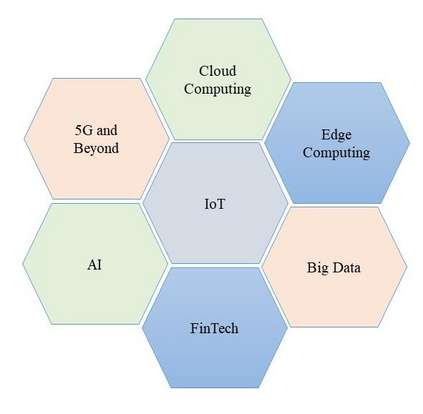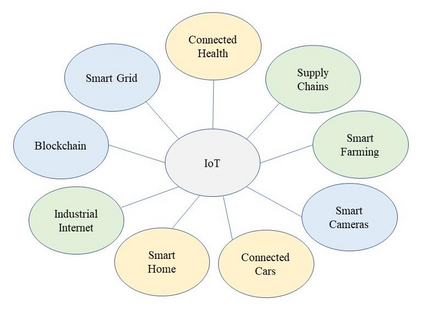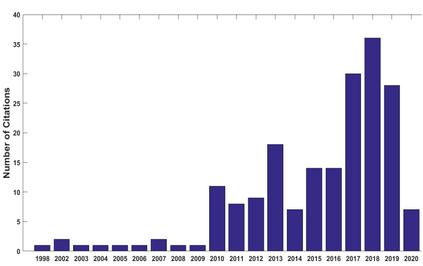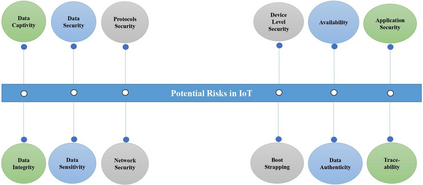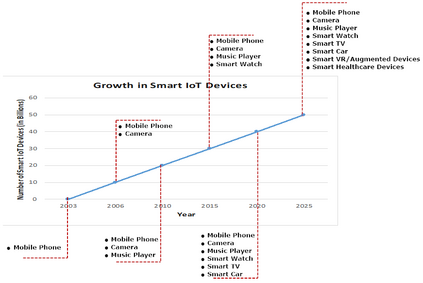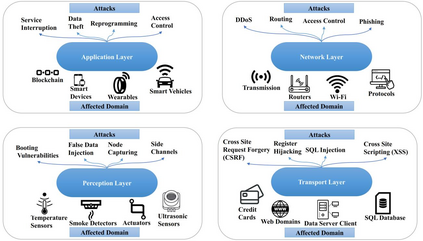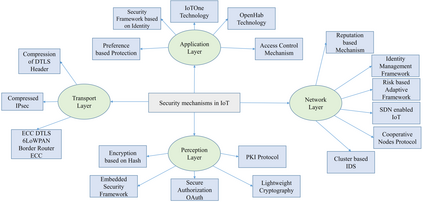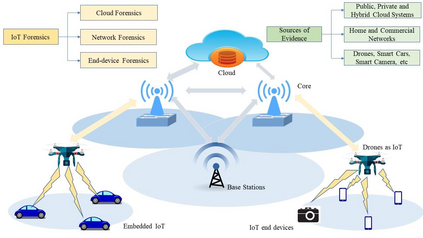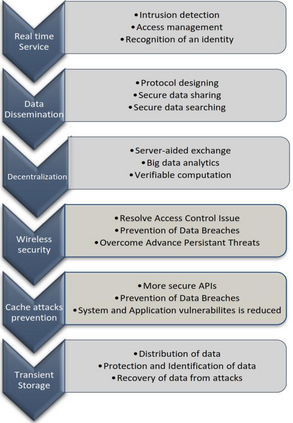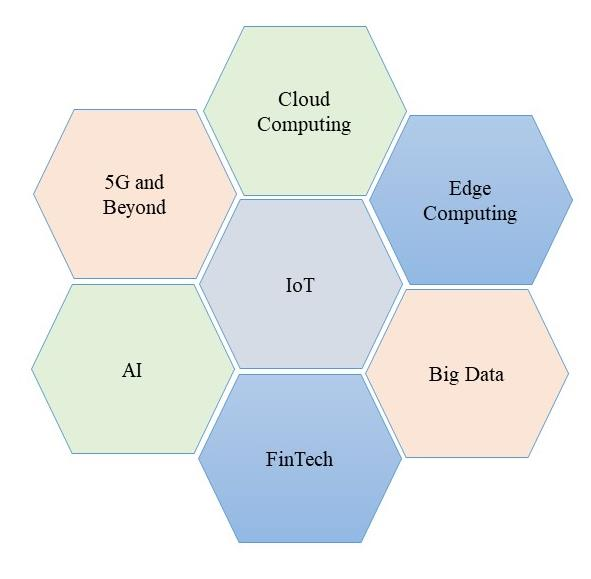Internet of Things (IoT) is the utmost assuring framework to facilitate human life with quality and comfort. IoT has contributed significantly to numerous application areas. The stormy expansion of smart devices and their credence for data transfer using wireless mechanics boosts their susceptibility to cyber-attacks. Consequently, the rate of cybercrime is increasing day by day. Hence, the study of IoT security threats and possible corrective measures can benefit the researchers to identify appropriate solutions to deal with various challenges in cybercrime investigation. IoT forensics plays a vital role in cybercrime investigations. This review paper presents an overview of the IoT framework consisting of IoT architecture, protocols, and technologies. Various security issues at each layer and corrective measures are also discussed in detail. This paper also presents the role of IoT forensics in cybercrime investigation in various domains like smart homes, smart cities, automated vehicles, healthcare, etc. Along with the role of advanced technologies like Artificial Intelligence, Machine Learning, Cloud computing, Edge computing, Fog computing, and Blockchain technology in cybercrime investigation are also discussed. At last, various open research challenges in IoT to assist cybercrime investigation are explained, which provide a new direction for further research.
翻译:智能装置的突飞猛进及其使用无线机械进行数据传输的可信程度提高了他们易受网络攻击的可能性。因此,网络犯罪的发生率正在日复一日地上升。因此,对互联网安全威胁和可能的纠正措施的研究有助于研究人员找到适当的解决办法,以应对网络犯罪调查中的各种挑战。互联网法医在网络犯罪调查中发挥着至关重要的作用。本审查文件概述了由互联网结构、协议和技术组成的互联网框架。还详细讨论了每个层次的各种安全问题和纠正措施。本文还介绍了互联网法医在智能家庭、智能城市、自动化车辆、保健等各个领域的网络犯罪调查中的作用。此外,还解释了人工智能、机器学习、云计算、Edge计算、Fog计算和阻塞技术等先进技术在网络犯罪调查中的作用。最后,还进一步讨论了互联网信息技术在协助网络犯罪调查方面的各种公开研究挑战,为研究提供了新的方向。

